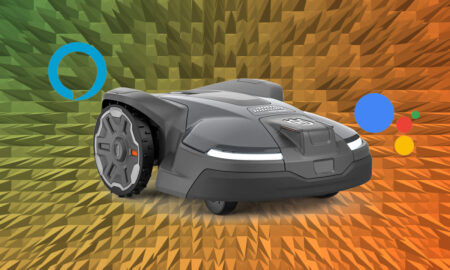But Google and Apple haven't been invited
In the ongoing, seemingly futile quest for interoperability in the smart home, a leading voice is gathering its forces to help our connected devices run more smoothly.
Amazon has teamed up with dozens of leading tech companies to found the Voice Interoperability Initiative, which has one purpose: to make it possible for you to talk to any voice assistant, on any smart speaker, at the same time.
Read this: RoomMe wants to bring your smart home to its senses
Allowing the user to choose which wake word they want to conjure the best assistant for the job makes a lot of sense, and this initiative wants to make sure you could choose if you want to talk to Alexa, Google or Siri each time you make a request.
“Multiple simultaneous wake words provide the best option for customers,” said Jeff Bezos, Amazon founder and CEO. “Utterance by utterance, customers can choose which voice service will best support a particular interaction.”
We are committed to a day where we’ll have multiple voice assistants operating simultaneously on the same device
Currently, while many devices can be operated by more than one voice assistant, very few if any speakers/devices support both Google Assistant and Amazon side-by-side. And of course Siri is totally encased in its solitary ivory tower. while Bixby is mainly in smartphones, and a fridge.
Sonos speakers were the first to have two voice assistants built-in to one device, but you can only have one running at any time (although Sonos says that will soon change).
“We are committed to a day where we’ll have multiple voice assistants operating simultaneously on the same device,” said Patrick Spence, Sonos CEO. “And are working to make that happen as soon as possible.”
According to a press release from Amazon, the voice initiative is built around a shared belief that voice services should work seamlessly alongside one another on a single device, and that voice-enabled products should be designed to support multiple simultaneous wake words.
More than 30 companies are on board including Amazon, Baidu, BMW, Bose, Cerence, Ecobee, Harman, Logitech, Microsoft, Salesforce, Sonos, Sound United, Sony Audio Group, Spotify and Tencent, plus a number of telecommunications companies and hardware manufacturers, including Verizon, Qualcomm, and Intel.
Notably missing are Google, Apple, and Samsung, whose Assistant, Siri, and Bixby are Amazon’s main competitors in the increasingly crowded space of voice assistants.
Apparently, Google hadn’t been invited. A statement from the company says: “We just heard about this initiative and would need to review the details, but in general we’re always interested in participating in efforts that have the broad support of the ecosystem and uphold strong privacy and security practices.”
With Google’s renewed emphasis on smart home privacy which prompted the shut down of Works With Nest because of ecosystem sprawl, the idea of letting 25 plus companies in on their speakers doesn’t seem likely however.
The initiative is a loose club right now, and while the primary goal is to make sure voice-enabled products work with multiple voice assistants, there are no specific guidelines or structure in place, yet.
But according to Dave Limp, Amazon’s SVP of devices and services, sees the formation of this group as an opportunity to shape the future of voice assistants, both from a hardware perspective and in terms of consumer trust around issues such as privacy.





